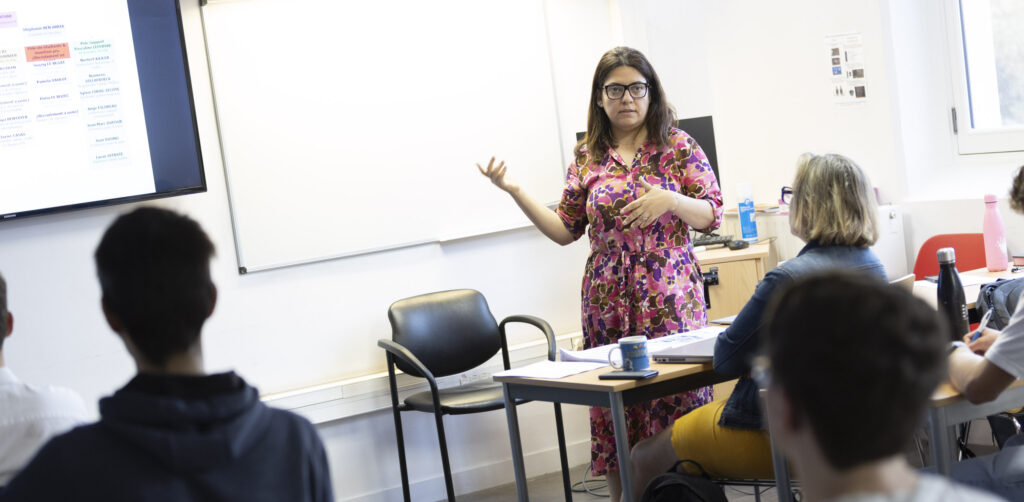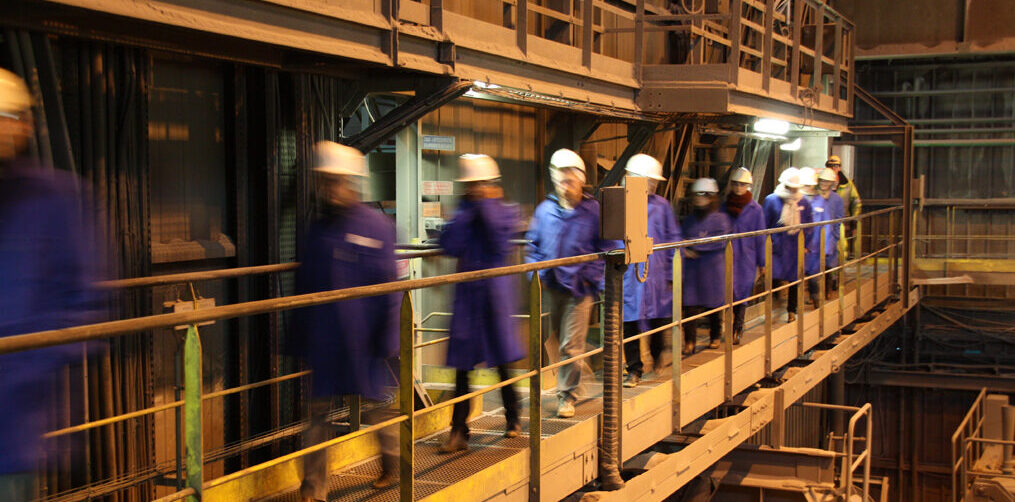IS Cycle: Program (FA)
The program alternates between school and work, offering apprentices a gradual immersion into the engineering profession.
The work periods are an essential part of the training, allowing students to acquire working methods and key professional skills: project management, communication, management, and organizational skills that complement the engineer’s technical expertise.

Syllabus
1800 h over 3 years, divided into 5 modules:
- Engineering sciences: Applied mathematics, electrical energy, dynamics of mechanical systems, applied physics.
- Regulation, control and networks: measurement chains, automation, sensors and regulation.
- Engineering management methods: Project management, Functioning of organizations, Economic calculation, Team management, Marketing.
- Communication and NTIC: English, Information systems, communication, BIM.
- Energy (basics) : Thermodynamics, Thermal engineering, Fluid mechanics, HVAC engineering, Electrical engineering.
- Energy (Applications): Renewable energies, building or nuclear thermal engineering (neutronics and energy cycles), energy optimization.
In-company training involves carrying out projects related to the training program. The acquisition of in-company skills is validated by the writing of project briefs and oral presentations.
| Engineering sciences | Energy | Control, Command & Networks | |
| 266.5 h | Bases 350 h | Applications 315 h | 168 h |
| Mathematics | Thermodynamics | Thermal machines | Control and automation |
| Mechanics | Heat transfer | Building thermics | Electronics and measurement chain |
| Physics | Fluid mechanics | Energy audits | |
| Chemistry and process engineering | Air conditioning | Renewable energy | |
| Excel and VBA programming | Electricity and electrical engineering | Energy expertise | |
| Python data analysis | Energy modelling | Energy Technology Project NUCLEAR OR BUILDING and RESOURCES OPTION Envelope and building structure | |
| Communication & NTIC | Engineering management methods | Preparing the engineering dissertation |
| 390 h | 223 h | 94.5 h |
| Synthesis and oral communication | Management and project management | Sustainable development |
| Technical synthesis | Systems engineering | Environmental law |
| Engineer’s identity | Economic calculation | Industrial safety |
| Information systems management | Team management, organisation, employment law | Propriété intellectuelle |
| English | Statistics, Reliability, Maintenance | Intellectual property+ Technical visits (industrial facilities) Athens Week |
Minimum 2 months’ international experience
An assignment abroad of at least 2 months is compulsory during the course.
Apprentices spend a minimum of 2 months between July and October at the end of 2nd year, either in a foreign company or in a foreign research laboratory. The aim of the foreign assignment is to :
- open up to other technical and organizational fields;
- acquire professional experience in a different cultural, linguistic or industrial context;
- adapt quickly to an unfamiliar context; communicate in a different linguistic and cultural environment;
- deepen linguistic and cultural skills through integration in a foreign country.


